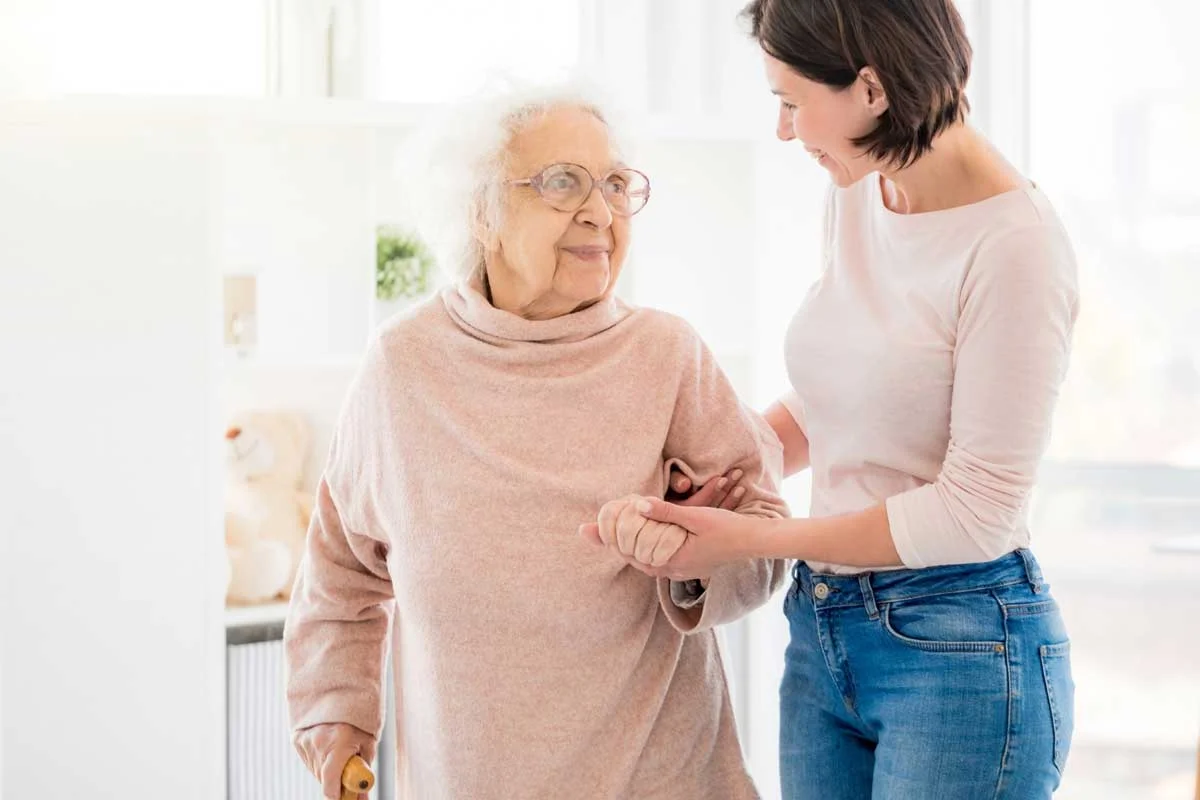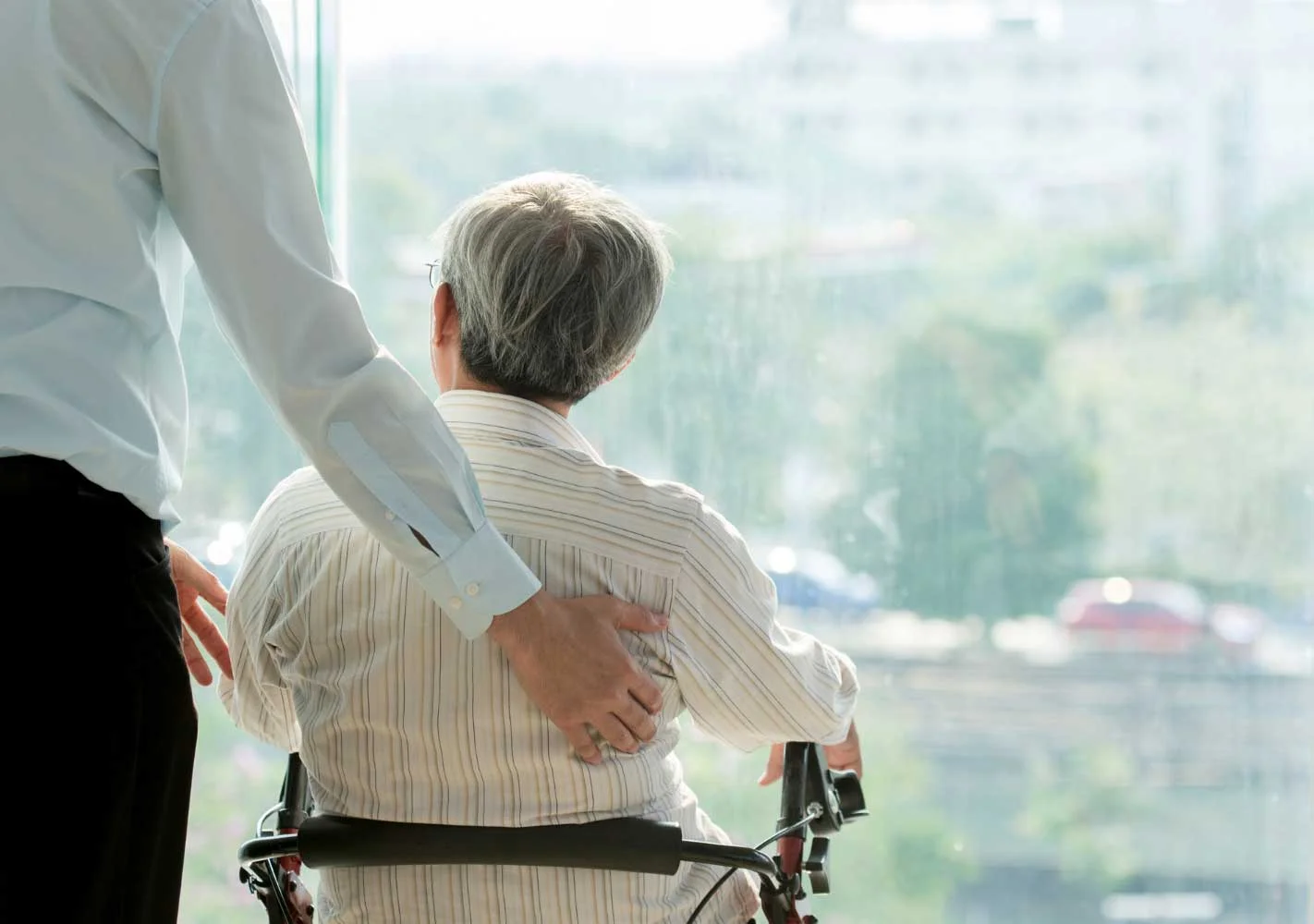Companion Care
- Home
- Companion Care
Suppose you noticed changes in your loved one’s demeanour, such as troubling mood swings and temperament. In that case, addressing and alleviating these issues is essential, especially for elderly individuals.
Unexpected behavioural changes in older adults can lead to loneliness, isolation, and boredom, adversely affecting their mental and emotional well-being. These changes in behaviour can manifest in various ways, such as withdrawal from social activities, decreased interest in hobbies, increased irritability, or mood swings. It is essential to recognise and address these changes to support the overall well-being of seniors.
Why do these abrupt changes occur?
Abrupt behavioural changes in older adults can be caused by various factors, including:
Loneliness
Loneliness occurs when seniors lack social connections or meaningful interactions with others.
Isolation
Various factors, including physical limitations, loss of mobility, sensory impairments, limited social interactions, and a lack of support systems, increase the risk of health problems like depression, anxiety, cognitive decline, etc.
Boredom
Boredom may arise from a need for more stimulating activities or a sense of purpose. It can lead to feelings of restlessness, frustration, and dissatisfaction.
Cognitive Decline
Decreased cognitive abilities characterise this condition, including memory, thinking, and decision-making skills. It can result from conditions like Alzheimer's disease, dementia, or other age-related cognitive disorders.
Medication side effects
Medication side effects can sometimes alter behaviour in individuals, including senior citizens. Certain medications prescribed for various health conditions can have unintended consequences on behaviour, leading to symptoms such as irritability, agitation, or disorientation.
Physical illness or pain
Physical illness or pain can indeed have a significant impact on elderly individuals' behaviour. The discomfort and distress caused by such conditions can lead to sudden behavioural changes.
Emotional or psychological factors
This can lead to feelings of sadness, anxiety, or depression in elderly individuals. Losing a loved one is a common emotional factor that can profoundly affect elderly individuals. The death of a spouse or close friend can lead to grief and loneliness.
Environmental changes
Relocating to a new residence, such as a nursing home or assisted living facility, can be a significant upheaval for elderly individuals. This adjustment period can lead to behavioural changes such as restlessness, withdrawal, or resistance to new routines.
Sleep Disturbances
Insomnia is a widespread sleep disorder in older adults. It is characterised by difficulty falling asleep or experiencing non-restorative sleep. Poor sleep leads to irritability, difficulty concentrating, and mood changes.
Nutritional deficiencies
can impact an individual's physical and mental health, leading to changes in behaviour. Specific vitamin and mineral deficiencies can lead to muscle wasting, weakness, and impaired cognitive function. These physical and mental symptoms can contribute to behavioural changes such as irritability, apathy, and difficulty concentrating.

To address the above-mentioned behavioural changes, opting to hire personal care on the Central Coast that helps in Companion Care services, such as the ones provided by Relative Care, plays a crucial role in senior citizens’ well-being. While it is essential to consult with healthcare professionals for abrupt behavioural changes, companion care and having a private caregiver for senior citizens can provide additional support to boost an older person’s attitude and state of mind.
Relative Care focuses on not just providing disability care services but also emotional support, companionship, and mental stimulation, which can indeed greatly benefit seniors’ mental health and attitude. Seniors may face various challenges and transitions, but Relative Care’s support workers or home caregivers are trained to provide empathy, understanding, and a compassionate ear to listen to seniors’ concerns and feelings. This emotional support can help seniors navigate these challenges and cope with any emotional distress they may be experiencing.
What is Companion Care on the Central Coast, and how can the Elderly Benefit from it?
Companion care refers to assistance provided to elderly individuals who may require private homecare support in their daily activities. It involves in-home caregivers who offer emotional support, companionship, and help with non-medical tasks.
Our Companion Care Services in Relative Care aim to provide care for senior citizens at home and enhance the overall well-being of seniors and disabled adults by addressing their emotional and physical needs.

Relative Care’s primary role is to offer companionship to:
- Help combat the adverse effects of loneliness and isolation.
- Help increase social interactions if you hire a personal caregiver.
- Helps alleviate boredom and boost mood but also provides a sense of purpose and fulfilment
- Provide regular visits from our support workers who genuinely listen, talk, and engage with the client.
- Engage seniors in activities and conversations that are tailored to their unique personalities.
- Develop meaningful relationships and get to know the seniors' preferences, interests, and life stories.
- Be involved in accompanying the seniors to social outings, events, or simply on walks around the neighbourhood.
- To encourage physical activity that stimulates mental engagement
- Help seniors connect with family and friends through phone calls, video chats, or social media platforms.
- Provides family caregivers with respite and peace of mind, knowing that your or your loved ones are receiving attentive and compassionate support
Overall, Relative Care’s Companion Care services are a vital service that supports seniors and disabled adults in their journey to age in place. By addressing their emotional and physical needs, promoting well-being, and providing a safe and engaging environment, Companion Care on the Central Coast enables individuals to live a fulfilling and high-quality life.
Ready to get Started with Relative Care's Companion Care?
Relative Care’s goal is to enhance individuals’ quality of life, and enabling them to age in place with dignity and independence is crucial. We can provide personalised elder care and meaningful Companion Care services by working closely with families and understanding their loved one’s needs and preferences. This alignment with the family’s goals ensures that the care provided is tailored to the individual, promoting a higher quality of life and overall well-being.
If you or your loved ones want to learn more about how Relative Care can assist through Companion Care services on the Central Coast, we encourage you to contact us. We are here to provide the support and care your loved one deserves to age comfortably and happily in their home.
